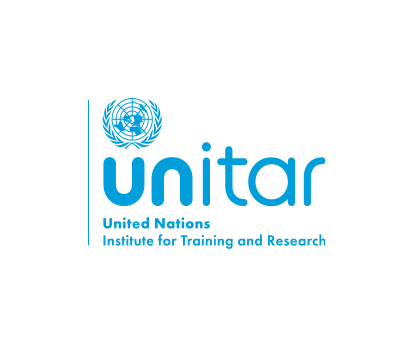We use a selection of our own and third-party cookies on the pages of this website: Essential cookies, which are required in order to use the website; functional cookies, which provide better easy of use when using the website; performance cookies, which we use to generate aggregated data on website use and statistics; and marketing cookies, which are used to display relevant content and advertising. If you choose "ACCEPT ALL", you consent to the use of all cookies. You can accept and reject individual cookie types and revoke your consent for the future at any time at "Settings".

Technical Training Workshop on Geospatial Decision Support for Disaster Risk Management in Bangladesh
种类
Course
位置
Dhaka, Bangladesh
日期
-
价格
US$0.00
活动协调人email
murad.BILLAH@unitar.org
合伙
Norwegian Agency for Development Cooperation (NORAD)
Department of Disaster Management (DDM) Bangladesh
a2i – Aspire to Innovate
登记
Private – by invitation
交货方式
Face-to-Face
语言
English,
Other
支柱
卫星分析和应用研究
Data Protection and Privacy
The personal data of participants applying for, registering for or participating in UNITAR's training courses and other events is governed by the Data Protection and Privacy Policy. By applying for, registering for or participating in this event, the participant acknowledges that he or she is, (or they are) aware of the policy and agree to its terms.
The "Strengthening Capacities in the Use of Geospatial Information for Improved Resilience in Asia-Pacific and Africa" project (2021-2024) aims to develop sustainable capacities and implement tailored geospatial solutions to enhance policy and decision-making processes in resilience building. With the support of the Norwegian Agency for Development Cooperation (NORAD), UNOSAT leverages technological advances and innovation to improve decision-making in Disaster Risk Reduction, Climate Resilience, Environmental Preservation, and Food Security in eight target countries: Bangladesh, Bhutan, Fiji, Lao PDR, Nigeria, Solomon Islands, Uganda, and Vanuatu.
Bangladesh is exposed to various natural hazards like flood, tropical cyclone, landslides, etc. especially from hydro-meteorological hazards which are likely to worsen with changing climate. For example, the rainfall pattern in Bangladesh is going to be more variable and erratic in future. There is an indication by Bangladesh Delta Plan 2100 that pre-monsoon and monsoon rainfall will increase under Business As Usual (BAU) scenario and on an annual basis and the rainfall is expected to increase in most regions during 2030. Under the Extreme (EXT) scenario, as temperature rise will be higher, more erratic behaviour of rainfall along with variation in amounts is projected. With that flooding and rainfall triggered landslides are likely to occur more frequently.
To reduce the risks, its essential to understand the risk using geospatial technologies, as factors like hazard, exposure, vulnerability are location-bound. Geospatial decision support has become one of the most crucial tools for disaster risk reduction (DRR). Geospatial decision support for DRR gives us the ability understand hazard dynamics, risk pattern, monitoring of risk driving factors etc. Decision support for DRR can help us to understand the impacts, their consequences and identify risk reduction strategies. In the introductory training the project team covered emergency response support analysis using satellite derived information and in the advanced training phase the team covered tools and techniques for basic hazard modelling.
As a follow-up of the previous trainings and to cater to the needs of government official of Bangladesh, UNOSAT is offering this technical training workshop on geospatial decision support for DRR.
Upon completion of the training program, participants will be able to:
- Recall the basic methodologies of flood risk assessment.
- Perform asset based coastal risk assessment.
- Utilize Bangladesh Flood Monitoring Dashboard.
- Recognize various features and functionalities Multi Hazard Risk and Vulnerability Assessment (MRVA) web application.
- Perform Multi Criteria Decision Analysis (MCDA).
This technical training workshop is designed to provide training in the use of geospatial decision support with a focus on the tools for disaster risk reduction. Participants will gain hands-on experience with various software platforms and techniques, enabling them to extract valuable insights from GIS and remote sensing (RS) data that can be used for DRR. The course covers a wide range of topics, flood risk assessment, flood monitoring through dashboard, risk assessment through web application and decision analysis using mutli criteria.
This is a full-time, face-to-face course with lectures, raster data processing lab exercises and real case scenarios (60% lab exercises, 40% lectures and discussions), and collection of training samples using reference data. This course is divided into 3 modules. Each module is structured into 2-4 sessions of 1.5 hour each. The course is designed in a way to have a balanced approach between theoretical and practical teaching methods consisting of presentations, live demos, interactive sessions, and lab exercises. At the end of the course, UNITAR-UNOSAT will set up a community of practice platform to maximise the learning experience of participants and to provide all required technical backstopping and assistance to training participants during and after the training.
The course is designed to accommodate selected participants by Department of Disaster Management (DDM) and other relevant stakeholders preferably selected from the participants of the Introductory Course on Strengthening Capacities in the Use of Geospatial Information Technology (GIT) for Disaster Risk Management and previous UNOSAT alumni.
GIS lab exercises will be based on Open Source QGIS software and web applications.

